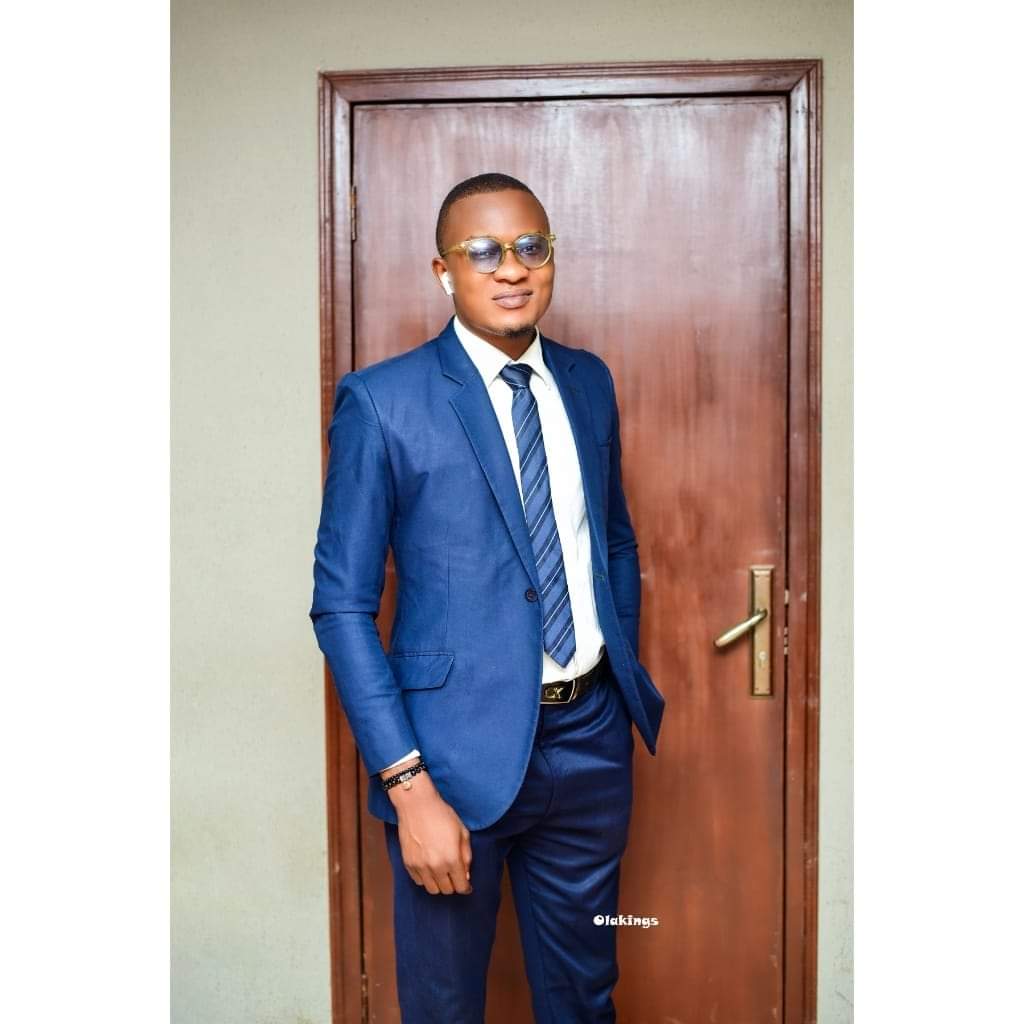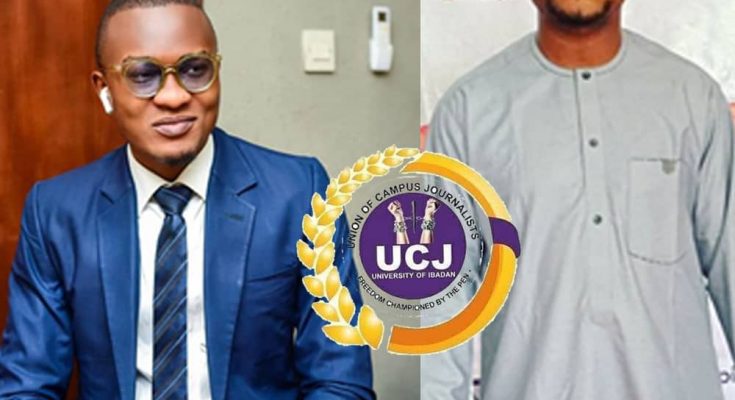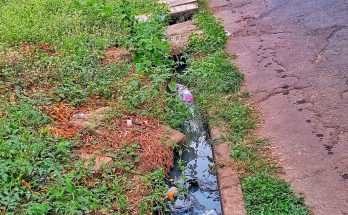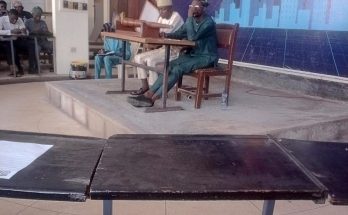By Adebayo Abdulrahman
Despite the deeply technical nature of the journalism profession, the fact that an individual does not necessarily need to have an academic background in journalism — or Mass Communication — to become a member of the fourth estate of the realm has been established, over and over again.
But how do you become a professional in a field several yards away from your course of study? That question is genuine. But the answer is clothed in a genuine understanding of the skills required to practice the profession — Critical thinking; Attention to details; Eye for stories; Logical reasoning. That list is endless and vague. And that is exactly what the profession requires — an endless list of skills that must always be subject to the latest information.
Even though in countries like Nigeria where journalism as a course of study for undergraduates rarely exists, it is important to note that if it even exists across all institutions, it can’t provide any individual with all the vague and unending yet important and irreplaceable skills needed to practice the profession, impactfully. This is where campus journalism begins to smile.
Founded in 1987, the Union of Campus Journalists, University of Ibadan is the foremost campus journalism platform in the country’s history. The success achieved by campus journalists in the institution influenced the creation of a similar platform at the University of Ilorin as is evident in the motto of the latter — Liberty championed by the pen, a direct recreation of that of UI — Freedom championed by the pen.
34 years later, the student organisation has continued to produce some of the best brains in the journalism and literary space on the continent. From Laolu Akande to Ohimai Amaieze; Kola Tubosun to Fisayo Soyombo — The list is endless.
Several individuals who stepped out of the Suite 14 office of the union into Agbowo just a few years have continued to break barriers in the journalism industry. Two of these individuals are Kunle Adebajo and Alao Abiodun.
‘Kunle Abdulfatah Adebajo is already a household name for impactful journalism in the country. A former Investigative journalist with the International Centre for Investigative Journalism, he now heads the Investigation and Fact-checking team at HumAngle.
Alao Abiodun works as a reporter and fact-checker with one of Nigeria’s leading dailies — The Nation newspaper. He is a 2020 fact-checking fellow with Dubawa.
While Kunle was the hardline journalist who won essay competitions at every interval, Alao was the go-to guy for accurate and up-to-date information while in school. In separate interviews with UCJUI, they relieved their campus journalism days and how it has impacted their activities since they switched into mainstream journalism.

‘Kunle Adebayo, Investigations Editor at Humangle
In what ways do you think being a campus journalist during your undergraduate days has influenced your journalism career?
In every way. I had zero journalism experience prior to my university programme, especially since enduring structures for co-curricular activities were not in place at the secondary school I attended. And then I was able to gather loads of skills and experiences during my five-year programme at the University of Ibadan, thanks to the pillars of journalism erected and maintained over decades. I had great mentors at the Mellanby Hall Press Organisation, which I joined soon after I gained admission. And then the Union of Campus Journalists supported with various capacity-building programmes. Not only did I have many opportunities to write and improve my craft, trying out different genres, I also had a go at leadership in different capacities, twice as editor-in-chief. Being part of the community additionally introduced me to distinguished alumni such as Fisayo Soyombo who would later be most crucial to shaping my post-school career and planting my feet in fertile soil. I am what I am, to a significant extent, thanks to campus journalism.
As a student, you were actively involved in various activities. How were you able to combine these activities with your academics without sacrificing the latter?
The trick, really, was crash-reading. I think I was good at it. I had developed patterns that worked for me. Of course, it was a terrible habit, and I could have achieved better results if I were a little more disciplined or if I had cut out some redundant activities. But it worked so well I just kept doing it. And it gave me a lot of time to focus on other activities I found truly delightful, including journalism and literary and debating events. There’s no right or wrong way; there are only priorities and basic minimums.
The environment of the University of Ibadan is unique. Do you think it was instrumental to the success you recorded as a campus journalist? How?
Yes. Yes. I know this for sure too because I had enrolled in a programme at another school before gaining admission at UI. The environment is different. It is more intellectually engaging because of the many student-led projects. There are also countless talents at the university, so regardless of where you turn you will always meet outliers and brilliant minds. As with many of our schools, of course, you will find some resistance, skepticism, and conservatism at the management level. But if the administration and the student community can set aside their biases and are humble enough to truly collaborate, something incredibly magical is going to happen.
Journalism, irrespective of how we try to coin it, requires asking the hard questions, how do you think campus journalists can combine doing this without putting their studentship at stake?
One, it is important to consider how you ask those tough questions. Sometimes, with our spirited approaches, we tend to set needless traps for ourselves. So, adhering to the ethics of journalism is critical. Be truthful, be objective, stick to the facts, hear the other side, and speak to multiple sources. You know, as students, we tend to sometimes confuse opinion-writing with journalism, which can be dangerous because you have a cocktail containing the confidence and certainty of journalism as well as the indefensible sentimentality and activism of opinions. Be clear what you want to do. Second, a robust system should be built, especially by the UCJ, not only to encourage critical journalism but to support writers in case of any backlash. Make sure embattled members do not feel alone and have all the assistance and advice they need to keep their heads above water. Whatever happens, be practical, exercise restraint, and never toe the undignified path. Put your best interests first.
What do you think campus journalists, at the University of Ibadan specifically, should do more of?
Pitch to prominent media outlets, both local and international, more. The barriers have fallen, and a student journalist can be just as good and just as successful as any journalist out there. Do not limit yourselves. Al Jazeera and the New York Times are not too big to have your bylines. Respect the process. Grow organically. But don’t limit yourselves. (Also, find and have a niche.)
Kunle Adebajo is already one of Nigeria’s best storytellers in journalism, what should we expect in the next decade? A Pulitzer?
Haha; thank you for the compliment. Right now, I am grateful for the opportunity (shout-out to my boss and the team at HumAngle) to be able to document how ordinary Nigerians are faring in the face of the various conflict situations bedeviling the country. There are still so many important stories to tell; we have not even scratched the surface yet. If some of them happen to win awards, well, glory be to God.

Also Abiodun, Journalist at The Nations Newspaper
You are currently a journalist with The Nation. How do you think your days as a campus journalist at the University of Ibadan influenced your career?
Basically, I came on campus as a direct entry student and I was able to develop a passion for journalism. Aside from my academic activities I had in the University of Ibadan, I saw campus journalism as a secondary activity to develop myself into something that I can be able to hold on to because I knew at the end its either I face a career in journalism or teaching and both are interwoven. So, my campus journalism days at the University of Ibadan has contributed immensely to how I have moved in my career. I have even enrolled as a Postgraduate student of journalism at the Nigerian School of Journalism in Lagos; it shows how much I have developed my passion for the profession.
There seems to be a clampdown on campus journalism in various Nigerian institutions whereby management show disdain for campus journalism that questions their activities. How do you think campus journalists nowadays can do what you people did without facing the wrath of the management?
Ordinarily, the management always gets terrified when they hear the word journalism. There is this impression of fear they have on their own path. You know when student journalists can write good articles that put management in trouble. So, the first thing that gets to them is the issue of fear and one thing for me when I was a campus journalist was that I didn’t create an atmosphere of fear because one day I would need this management for information that is very beneficial to students. So, student journalists need to take away the view that they want to start attacking the management.
There are times, even as a mainstream journalist, you look at the good and bad side of everything. So, as a student journalist, you don’t just start being anti-management. What is required is that you must embrace ethics of journalism — objectivity, accuracy. The ethics guiding the profession is what you need, not necessarily because you want to be friends with the school management or you want to be friends with the Vice-chancellor. You are only a journalist because you ask them questions pertinent to the students.
However, there are extreme cases where the management tries to show they are at the helm of affairs and want to suppress the freedom of student journalists. You as a student journalist must not forget that you have a body and you must carry this body along because when push comes to shove, the President or Editor-in-chief would be answerable even before the reporter. So, you must get your facts right and make sure whatever you are doing is accurate. You must ensure there is no loophole in your works because once there is a loophole, it is through that loophole they would nail you.
For example, a colleague while we were on campus, Kunle Adebajo had all the facts and he was able to present it to the management but in the end, these people have all the machinery to themselves because they feel like you are a student and you can’t fight them. The only way you can win in the end is if you stand on that objectivity. What you need to do is ensure that whatever you are reporting is of credible facts and everyone can easily relate with it.
How did the environment and atmosphere of University of Ibadan your influence your days as a campus journalist?
I created my own atmosphere as a campus journalist while in the University of Ibadan. Though the atmosphere of the school contributed because I can’t exist in isolation. The atmosphere there while I was a campus journalist was fair enough and I was able to utilise all at my disposal. It was not just about academics alone; it was about extracurricular activities beyond even journalism because you have to incorporate learning into all you are doing.
The atmosphere there was good. I had good support from those who brought me into journalism while I was on campus. I had people who nurtured that passion for me to be able to climb that pinnacle from being a rookie reporter to being an Editor.
The atmosphere was fair enough and the fact that I had to do my best to ensure I was not limited to that alone.




